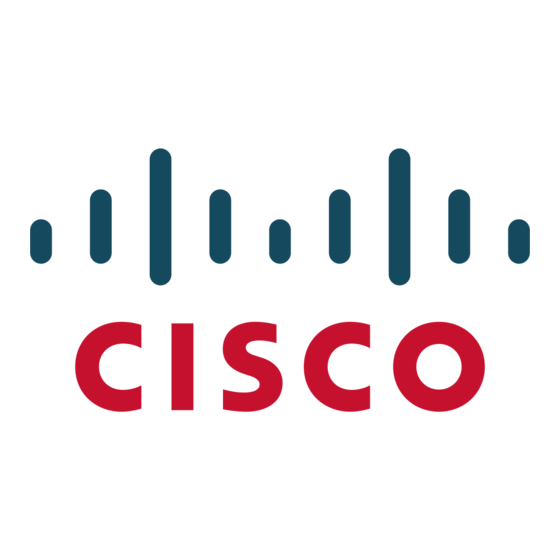Settings effecting video quality
Default call rate
The quality of the image will depend upon the bandwidth of the call as this limits the resolution of the
images that will be sent and received. Generally from a system running TC software in order to have a call
achieve 720p (HD) quality the call rate should be above 1152 kbps with 30 frame per second and 2560
kbps for 60 frame per second (if your codec supports 60fps). The quality you receive or send can be
limited by the equipment you are calling at the far end site (see "interoperability issues" on page 9).
Below are the minimum call rates you need in order that the system can achieve certain resolutions.
The higher the bandwidth the greater the quality of the call should be.
Minimum Call Rates Needed for Various Resolutions
Frame
rate
256 kbps
512 kbps
768 kbps
30 fps
512 x 288
768 x 448
1024 x 576
60 fps
256 x 144
512 x 288
512 x 288
The default call rate can be set under
Configuration -> System Configuration -> Conference 1 -> Default
Call ->
Rate. You can change the call rate from the default when placing calls, if a different rate is required.
Video protocol
if the image quality is not what you expect, you can check that the video being transmitted/received
using the H.264 video codec. it uses the bandwidth more efficiently and therefore the quality will be
higher for a given bandwidth than when using a H.263 or H.261 video codec. You can check this in a
call under the Call Status screen on the Touch panel and the System Information page using the remote
control. On the web interface you can find this navigating to
and press the triangle symbol to expand the call detail. To see how to access these screens, please
see the next section – Network related issues.
if the video is not being transmitted as H.264, check that the far-end system supports H.264.
Selecting when to use 60fps over 30fps
For each video input, this setting tells the system the lowest resolution where it should transmit 60fps.
For all resolutions lower than this, the maximum transmitted framerate would be 30fps, while above
this resolution 60fps would also be possible, if the available bandwidth is adequate.
To select when to use 60 fps rather than 30fps you can change the resolution under
System Configuration -> Video -> Input -> Source 1 -> Optimal Definition
For example if this is set to 1280_720 with a system that is not capable of 1080p 60fps (see next section)
then from 1152 kbps you will get 1280x720 at 30fps. With a bandwidth of 2560 kbps and above, the
resolution transmitted will be 1280x720 at 60fps, rather than 1920x1080 at 30fps. You cannot get a
resolution of 1920x1080p in this case even at maximum call rate.
D15029.01 Troubleshooting Guide TC6.0, April 2013.
Call rate
1152 kbps
2560 kbps
6000 kbps
1280 x 720
1920 x 1080
1920 x 1080
768 x 448
1280 x 720
1920 x 1080
Call Control -> Call Control -> Participants
Configuration ->
->Threshhold60fps.
if set to 1280_720 with a system that is 1080p 60 fps compatible then you will get 1280 x 720 at 30fps
at 1152 kbps, from 2560 kbps 1280 x 720 at 60 fps and from 6000 kbps 1920 x 1080 at 60fps. See
the table under Optimal Definition profile section for various resolutions and frame-rates supported.
Hardware support for 1080p 60fps for C60 and C90
New to TC6 is the support for 1080 at 60 frames per second (previously 60fps was only available at
lower resolutions) for C Series C60 and C90. Not all hardware is compatible with this. You can see if
your system is 60fps capable from the Home section of the web interface under General. if it is not
listed there, your system does not support 60fps.
To see if your system is capable of achieving this, please read the section 1080p60 support for SX20,
newer C60s and C90s in the
Release Notes for
endpoint/software/tc6/release_notes/tc_software_release_notes_tc6.pdf
Optimal Definition Profile
Typical resolutions used for different optimal definition profiles, call rates and frame rates
Optimal
Frame
Definition
rate
Profile
256 kbps
768 kbps
Normal
512 × 288
1024 × 576
30 fps
Medium
640 × 368
1280 × 720
High
768 × 448
1280 × 720
Normal
256 × 144
512 × 288
60 fps
Medium
256 × 144
768 × 448
High
512 × 288
1024 × 576
This setting controls at what bandwidth certain resolutions are transmitted (see table below). it is
recommended to set this to normal. if you have a dedicated video room with very good lighting condi-
tions, you can increase the profile to medium (or high in exceptional conditions) to transfer at a higher
resolution for a lower bandwidth.
7
Troubleshooting Guide TC6.0
TC6.0:
http://www.cisco.com/en/US/docs/telepresence/
Call rate
1152 kbps 1472 kbps 2560 kbps
4 Mbps
1280 × 720
1280 × 720 1920 × 1080 1920 × 1080 1920 × 1080
1280 × 720
1280 × 720 1920 × 1080 1920 × 1080 1920 × 1080
1280 × 720 1920 × 1080 1920 × 1080 1920 × 1080 1920 × 1080
768 × 448
1024 × 576
1280 × 720
1280 × 720 1920 × 1080
1024 × 576
1024 × 576
1280 × 720 1920 × 1080 1920 × 1080
1280 × 720
1280 × 720 1920 × 1080 1920 × 1080 1920 × 1080
Copyright © 2013 Cisco Systems, Inc. All rights reserved.
6 Mbps

